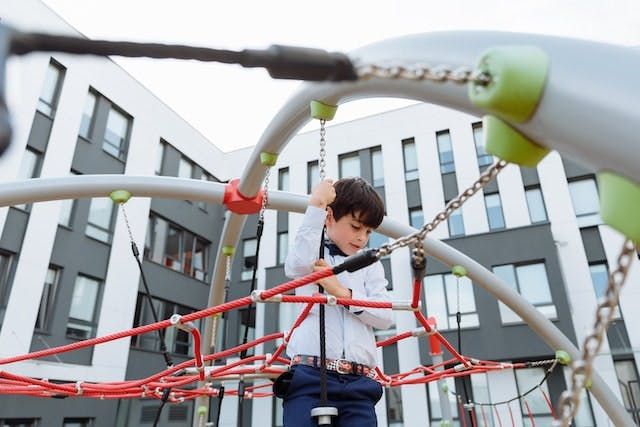Mom Guilty of Not Being Paranoid Enough
A mother in Arizona was the victim of a system that confuses unreasonable fear with unreasonable risk.

“I do not believe that I neglected him. No, I believe that playing in the park is something that… was appropriate to his development level, to who he is right now.”
Tucson, Arizona, mom Sarra X was testifying at a hearing to determine if she was guilty of neglect for letting her son, 7, and his friend, 5, play in the park while she shopped for a Thanksgiving turkey in 2020. (To protect Sarra’s privacy I’m not using her last name.)
Spoiler alert: She lost. But in a rare bit of good news, last week a judge temporarily blocked the Department of Child Safety (DCS) from putting Sarra’s name on a child abuse blacklist, pending an appeal.
Thank goodness! Because I testified for Sarra as an expert witness, and I can tell you that her only crime was being rational.
The facts are not in dispute: Someone saw Sarra’s son and his friend playing in the park and called the cops. In return for pleading guilty to contributing to the delinquency of a minor and taking a life skills course, the criminal charges were dropped. But DCS was not as easily appeased.
At the hearing, the department argued that any number of horrible things could have happened to Sarra’s son in those 30 minutes: He could have been attacked by homeless people, witnessed drug abuse, sprained an ankle, broken an arm or stepped on glass or needles (he took off his shoes).
Or he could have been abducted by a daytime kidnapper undeterred by all the dog walkers, park workers and people attending a tai chi class being taught by Sarra’s friend. Arguing that those things weren’t likely to happen — and didn’t — was Sarra’s defense.
And that’s what did her in.
The fact that there hadn’t been a child abduction in over a decade, according to the Tucson Police Department’s own records, which the defense dug up? Didn’t matter.
That Sarra went back to the park to scour for needles and found none? Pshaw. How about the fact that she had actually worked as a statistician early in her career, so she had an above-average understanding of risk?
All irrelevant, according to the DCS attorney, Kayla Peckard. “Arizona courts have reasoned that in dealing with ‘probable cause,’ we deal with probabilities. These aren’t technical or factual.”
Got that? “Probabilities” don’t actually have to be probable! Indeed, Peckard added, “Adopting statistical data as part of the standard of ‘probable cause’ runs contrary to the legal precedent.”
So Sarra’s ability to reality-check actually worked against her.
At the hearing, Sarra’s lawyer, Thea Gilbert, told the court: “Government intrusion on parental rights has to be reasonable.”
In this case, I testified, the intrusion was based only on the unreasonable, helicopter-parenting belief that “the second you take your eyes off your kids, you’re a bad mom.”
Yes, the DCS attorney won this round by insisting that, “There’s an unreasonable risk… if any child is left anywhere unsupervised.” In her world, unreasonable fear is interchangeable with unreasonable risk.
So, if a child protection worker can imagine a danger, however remote, it’s treated as an actual danger that a terrible parent willfully ignored.
But the tides are starting to turn. The Pacific Legal Foundation and Goldwater Institute have taken on this case. Their work got Sarra temporarily off the “Central Register” of child abusers and neglectors, pending her appeal. Being on the Register would mean Sarra could not continue her work helping refugees with employment and child care, because registrants can’t work with children. And registration lasts 25 years.
Meanwhile, with the help of my nonprofit, Let Grow, four states have passed “Reasonable Childhood Independence” laws saying neglect is when you put your child in actual and likely danger, NOT anytime you take your eyes off them. We’re working in five more states this year, for one simple reason:
Paranoia should not be policy.
Creators.com

